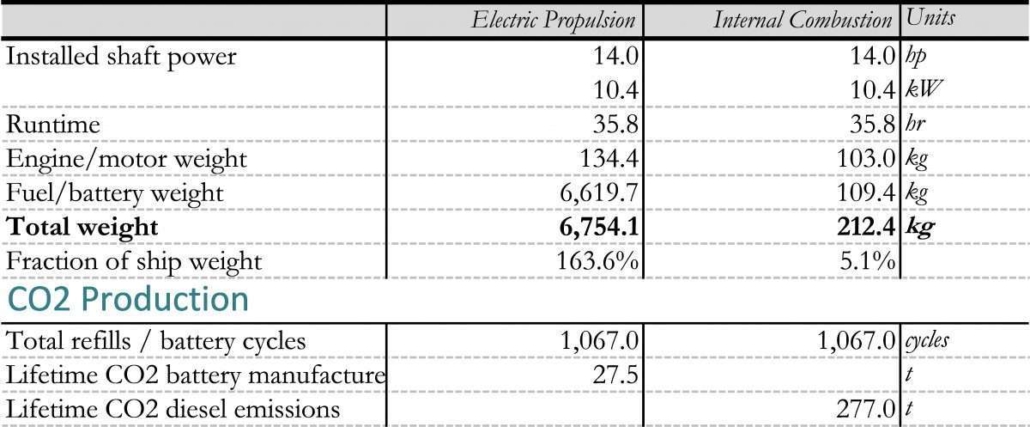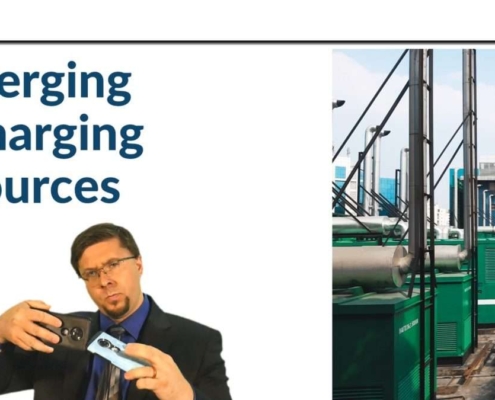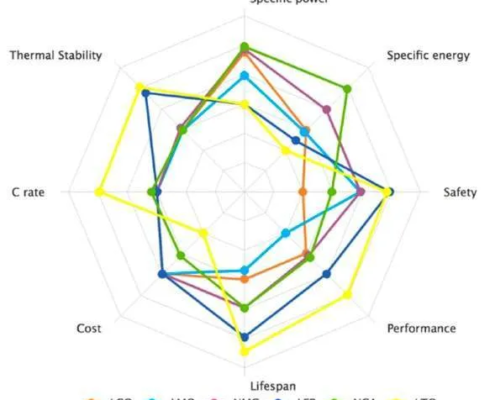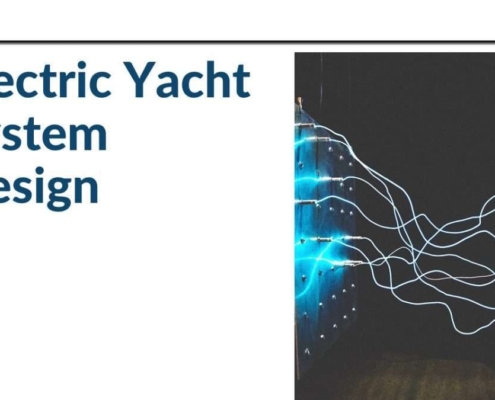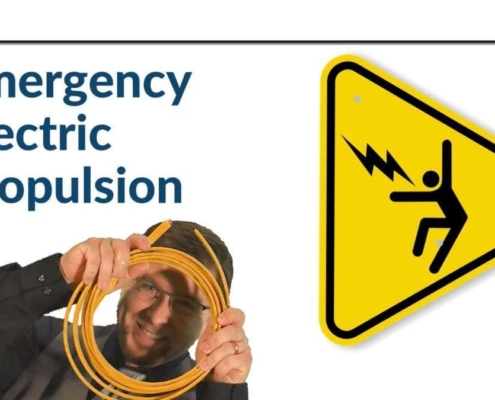Electric power is not a miracle cure that magically saves the world. The technology has limits, like any industrial technology. When applying electric power to a small boat, you need to start by considering three facts:
- Weight matters
- Electric batteries fall far short of combustion engines
- Electric propulsion comes with its own environmental impact
With ships, we always need to consider weight. Extra weight means the ship sits lower in the water, which increases power requirements. And electric propulsion often weighs more than combustion engines. Often, our ship requires more power for the same speeds, just from the burden of extra weight. Table 2‑1 shows an apples for apples comparison between electric propulsion and a combustion engine on a small 30 ft. sailing yacht, reproducing the exact same runtime. The electric option was nearly 32x heavier. This more than doubled the total ship weight!
Clearly, electric batteries are just too heavy. Which brings up the second point. Batteries require far more weight to store the equivalent energy of diesel fuel. For any practical installation, this requires some type of compromise:
- Supplement with generator
- Recharge the batteries underway (sails or solar propulsion)
- Accept much shorter runtimes
Batteries alone don’t cut it. Electric propulsion requires a more complicated plan for energy storage and utilization.
More complexity means more equipment. More manufacturing. More CO2 produced. Batteries come with their own environmental impact. Just looking at CO2 production, our batteries release about 28 t of CO2 for their manufacture. [1] Not too bad when you consider that the batteries are reusable. This was only 10% of the CO2 released from the equivalent energy in diesel fuel. Assuming the batteries get recharged from renewable sources, plus several other assumptions. Clearly, electric propulsion offers some benefits, but this incurs its own environmental cost. You don’t get something for nothing. Even in terms of environmental impact.
The real story behind electric propulsion always involves more complexity and nuance. It’s not one solution that solves every problem. Electric propulsion means more complexity, and new costs. The value of that complexity depends on your individual goals. We no longer ask if electric propulsion is a good idea. We now need to ask if this technology works for your situation.

